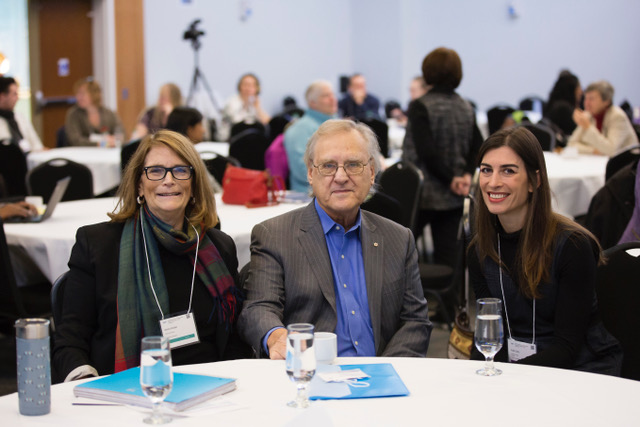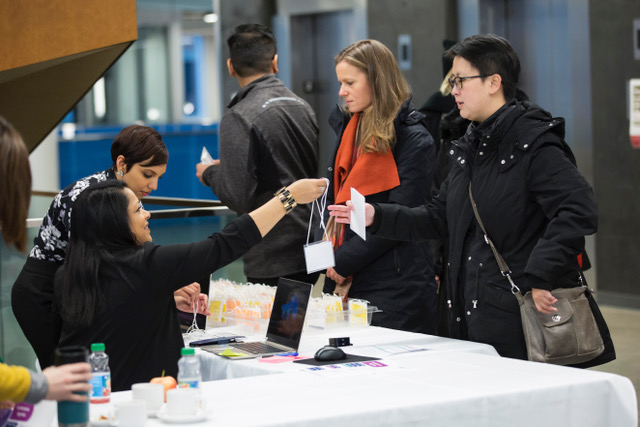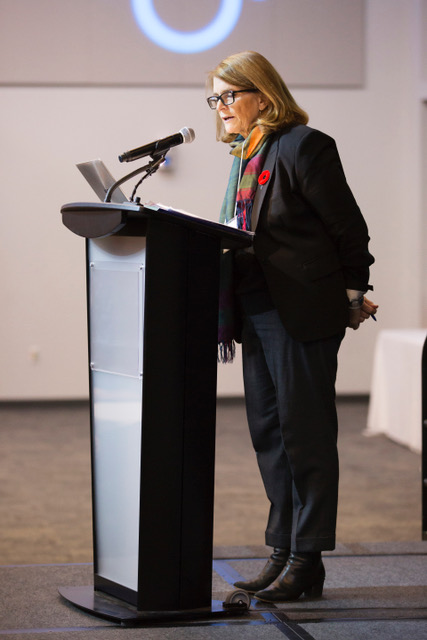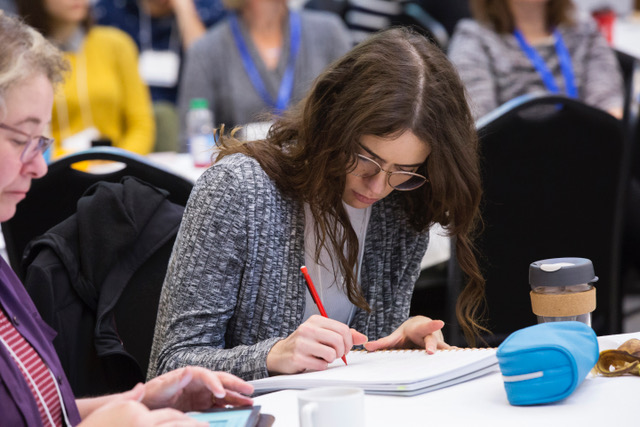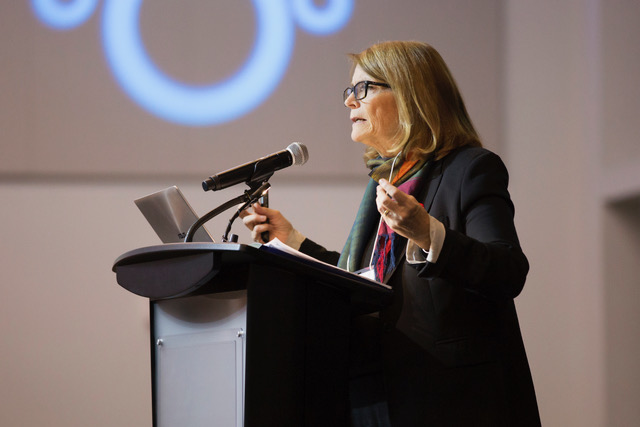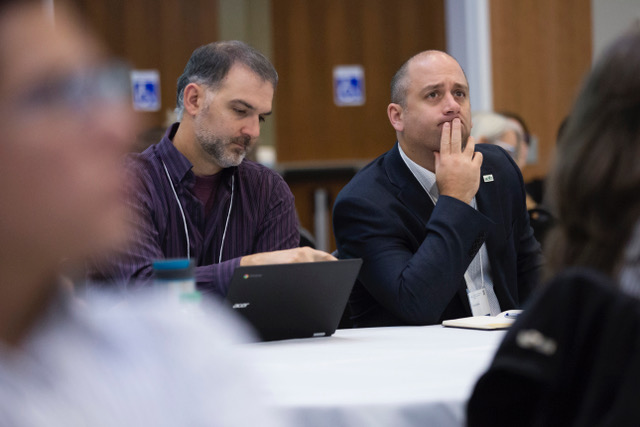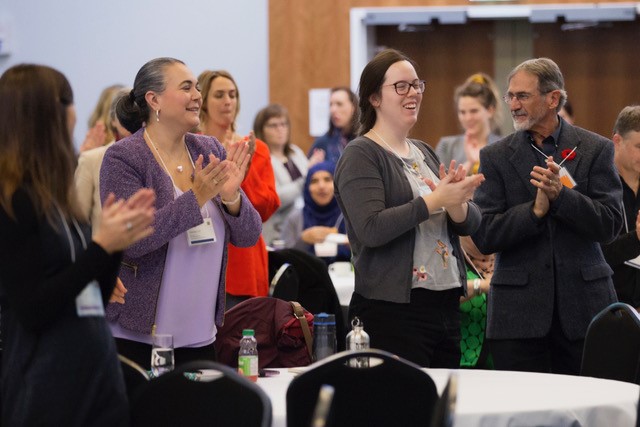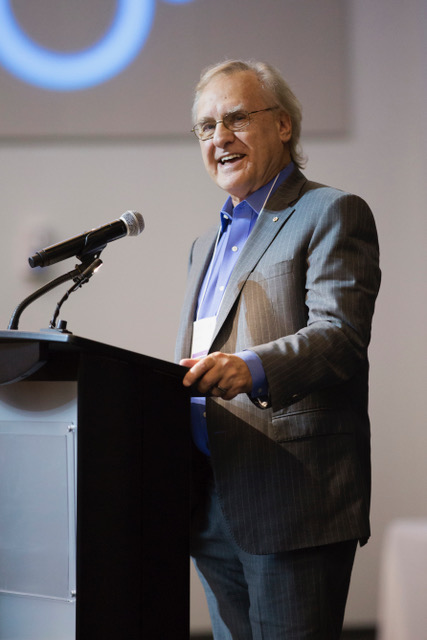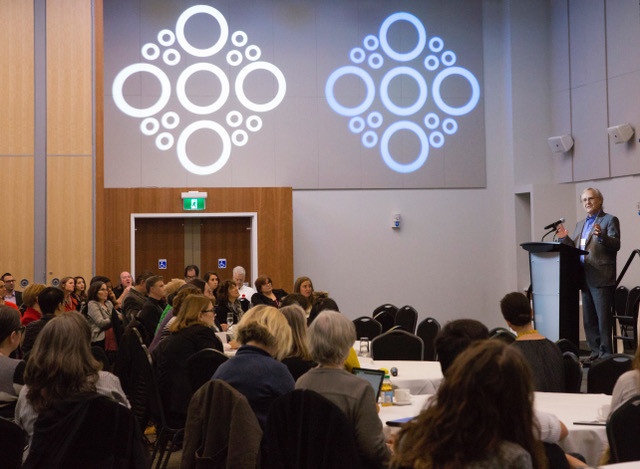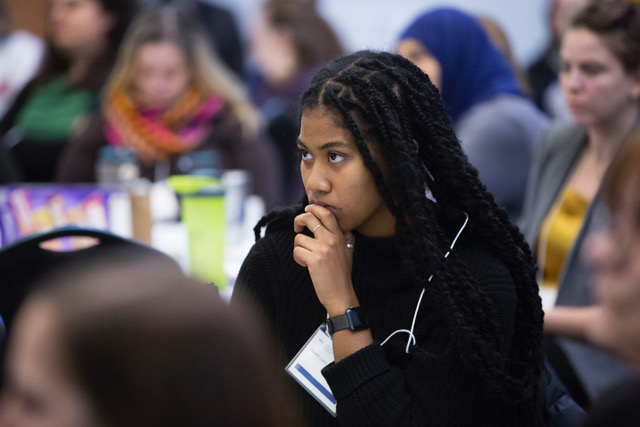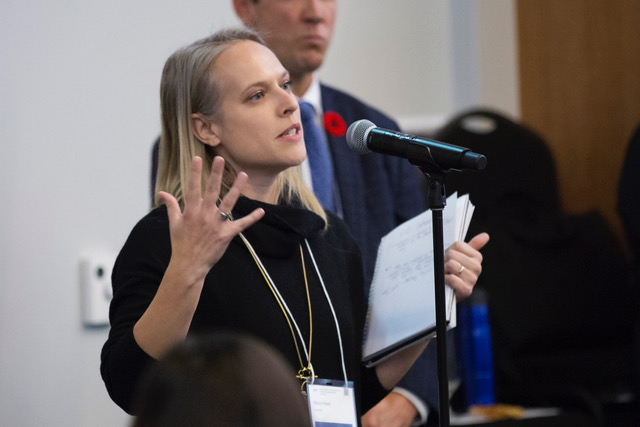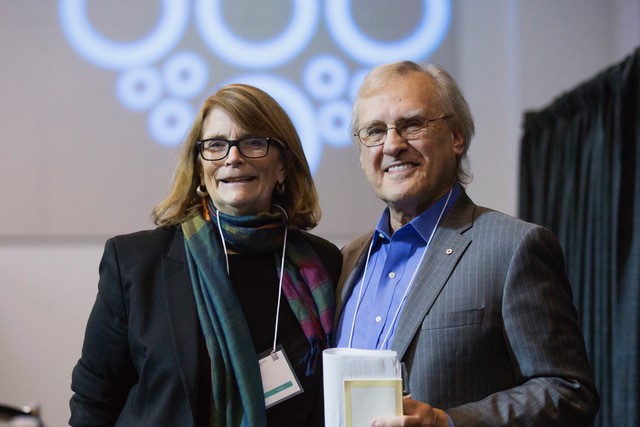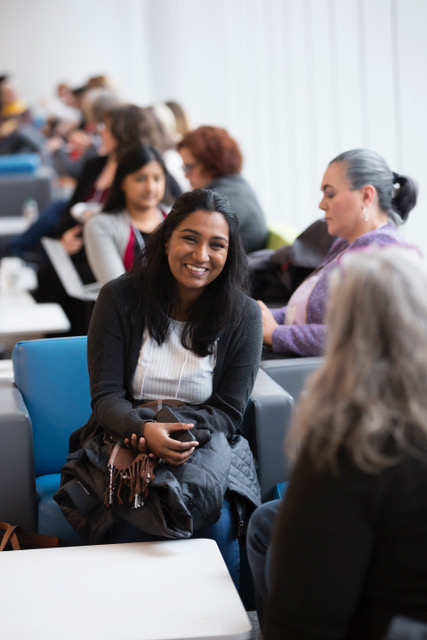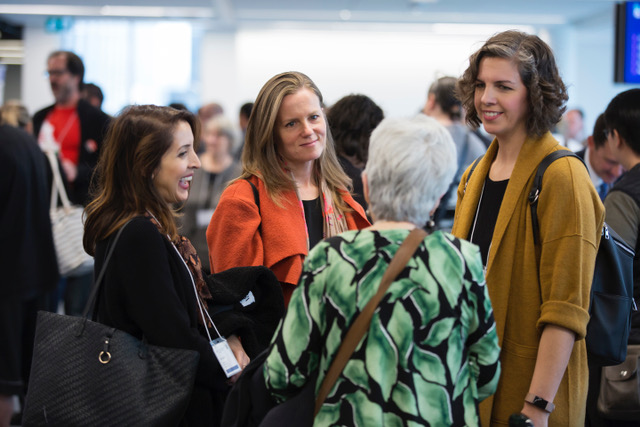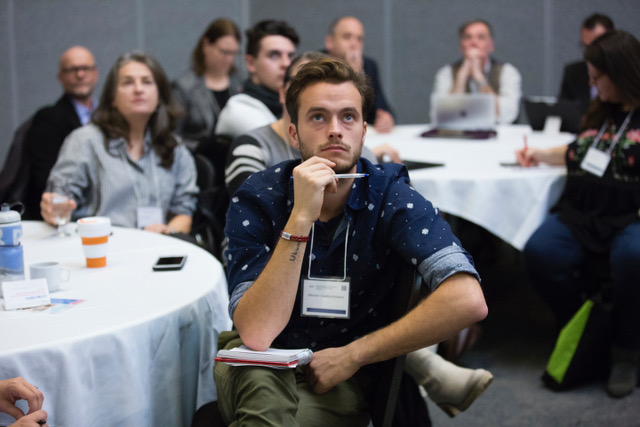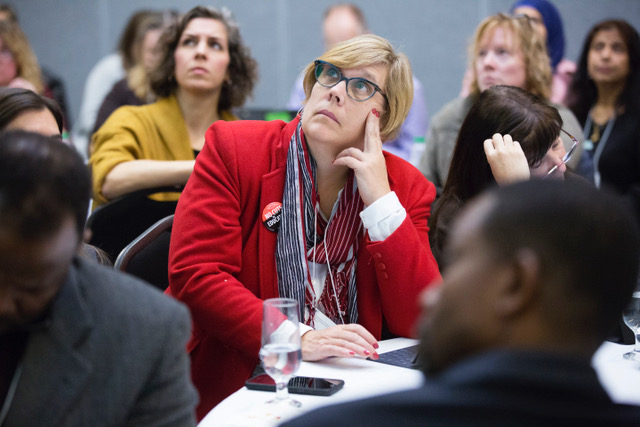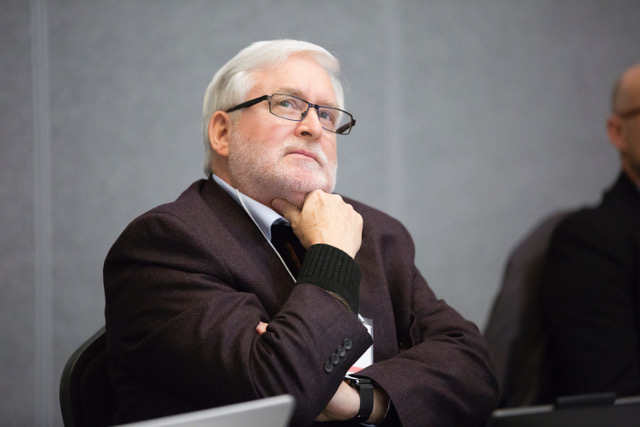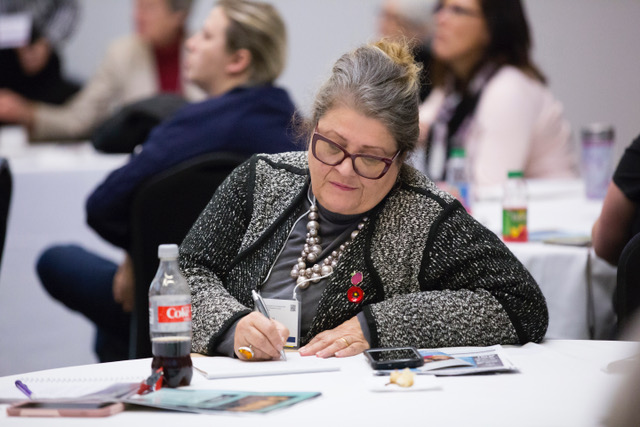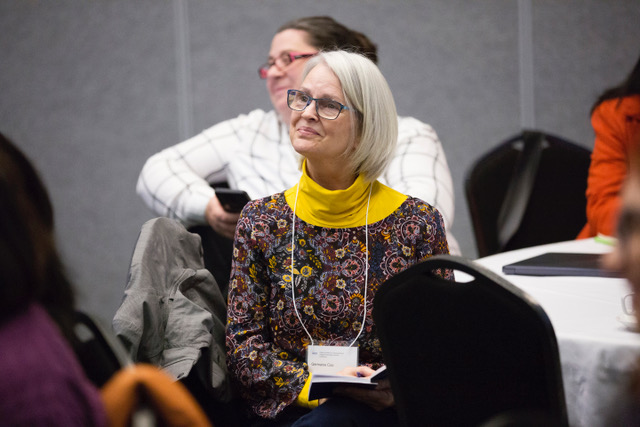Thank you to everyone for your support of our annual conference!
Public Education in a Changing World: People for Education's Annual Conference
Conference highlights
Session highlights
In this youth-led workshop, researchers from Skills for Change introduced their participatory action research from a collective impact approach with Toronto’s Jane and Finch community. The youth researchers reflected on their experiences in the field and shared findings from their work. Participants had the opportunity to test out their strategies in an activity that tackled real-world challenges for stakeholders in public education, considering the various ways that youth can inform solutions.
This session provided an opportunity for participants to learn about how we can embed Indigenous histories, traditions, perspectives and contemporary realities into K-12 education. Gregory Querel presented on the education priorities of urban Indigenous communities and how the Ontario Federation of Indigenous Friendship Centres’ multi-level K-12 approach can support Indigenous students. Colinda Clyne presented guidelines and strategies that her school board uses for meaningfully collaborating with Indigenous community partners and stakeholders to promote reconciliation in the school system.
The provincial government has announced that, starting in the fall of 2020, high school students will have to complete four online courses before their graduation. In this session, participants had the opportunity to learn about the pros and cons of making e-Learning a mandatory part of students’ education.
Alison Baron, an experienced online teacher and curriculum developer, provided an overview of the history of e-Learning and the challenges and opportunities facing the current system. Beyhan Farhadi, a classroom teacher and researcher, shared findings from her work with the Toronto District School Board about the geographical constraints and benefits of e-Learning, and the potential equity implications. Maxim Jean-Louis discussed the work of Contact Nord, and e-Learning’s role in developing computer literacy, while considering social inequities and logistical barriers.
Mental health continues to be one of the biggest challenges principals identify in their schools – students and educators alike. How is the public education responding and supporting school communities?
Participants left this session with practical strategies for equipping professionals and learners with resources and tools to enhance well-being. Anne Murray, a psychologist, and Pat Gough, a retired educator, presented on how their programs are working with educators and parents to enhance personal wellness and student wellness. Researchers from the EdCan Network complemented these practical conversations with results from their recent public attitudes survey that engaged 1,000 parents and K-12 staff to identify the beliefs that hinder investment in school board staff well-being.
Is play a fundamental part of student development? What roles do our school yards and playgrounds play in fostering opportunities for meaningful play?
In this session, researchers Taylor Benoit and Kelly Gallagher-Mackay presented their recent audit of the quality of school yards in school communities across Ontario. Participants learned about recommendations on the priorities and goals for Ontario schoolyards. Eric Tanguay – a teacher and inspector – shared insights on learning beyond the classroom and the practicality, safety and feasibility of outdoor spaces for students.
We know that our public education system must continue to evolve as our world changes. But, what does this look like?
Drawing on a historical scan of 200 years of Ontario’s educational policy, this interactive workshop hosted by Experience Design Lead, Lorainne Randell introduced the “foresight process.” Participants applied the lessons from the foresight process to identify future trends and signals to re-imagine our public education system for 2040.
Facilitator(s): Lorraine Randell, OCAD University
Students’ race, socioeconomic status, and parents’ education continue to have an impact on their destinations after high school. Is it possible to change this seeming inevitability?
In this session, researcher and policy expert, Amy Kaufman provided information on how under-represented students can better access Ontario’s colleges and universities. Professor Karen Robson shared the findings from her five-year project comparing the realities in risk factors for post-secondary access in Toronto, Chicago, New York City and London (UK).
Unconscious bias, streaming, everyday discrimination, the hidden curriculum—these are barriers students face on a daily basis.
Panelists from the Toronto District School Board, the Social Planning Network of Ontario, and Social Planning Toronto led a discussion on how our schools have to change to alleviate these barriers. This panel provided strategies for making education more equitable for students of various gender identities and sexual orientations, and from different ethnic, racial, cultural, linguistic, and economic backgrounds.
People talk about “youth voice,” but what does that really mean? And how can we make it a reality in our schools?
In this session, participants learned about the benefits of youth inclusion in policy conversations, as well as practical examples of projects where students were able to exercise autonomy and leadership. Bridget Stirling, a young school trustee from Edmonton, described how she has been working in Alberta to foster youths’ right to participate in critical policy conversations that will shape the communities they will inherit. Kate Gatto and Louis Paolillo provided examples from the Youth and Philanthropy Initiative showing how project-based learning is being used to empower the student voice. School principal, Sandy Millar, and board consultant, Andrew Bieronski, shared insights from their start-up incubator for high school students to foster global competencies.
Strong school-community connections are key to quality learning environments. But what works to build those vital bridges?
In this session, Marcie Ponte and Robert Kennedy described a collaboration between the Working Women Community Centre and York University that is making strides in closing the gaps for students at-risk through home-based tutoring programs.
Nadine Trépanier-Bisson shared the principal perspective on relationship-building between and within the school and community, and Badrieh Kojok described the innovative ways that that Parents partenaires en éducation and Ontario’s French-language schools are equipping parents in their role as true partners in education.

